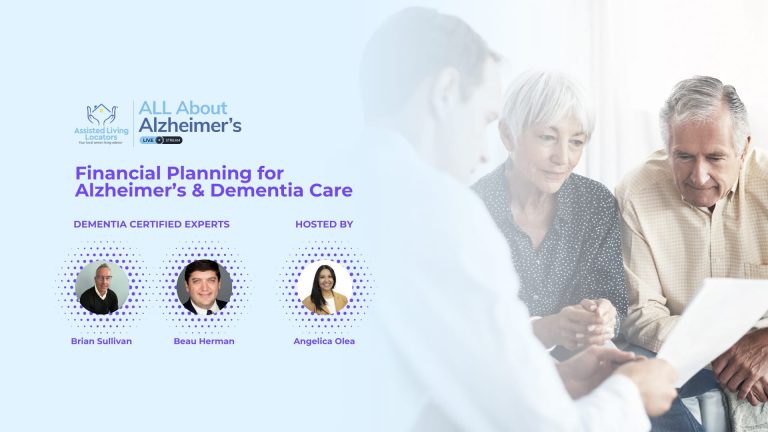Caring for elderly loved ones involves navigating numerous challenges, from managing daily care needs to making critical healthcare decisions. It’s essential to understand the government benefits available to seniors, as these programs—Medicare, Medicaid, and Social Security—not only help alleviate financial strain but also significantly enhance the quality of life for our elderly family members.
The financial impact of caregiving is profound, with the estimated value of unpaid caregiving in the U.S. reaching $619 billion in 2020. However, 40% of caregivers report experiencing financial strain due to these responsibilities, often providing an average of 20 hours of care per week.
Additionally, the average annual cost of a nursing home exceeds $100,000, and while Medicare and Medicaid cover some of these expenses, significant out-of-pocket costs often remain. This underscores the importance of effectively navigating these government programs to alleviate financial burdens and ensure the best possible support for your loved ones. In this blog, I aim to provide a comprehensive guide to these essential resources, offering insights and practical advice to empower you in securing the care your loved ones deserve.
Key Government Benefits
Below is an overview of three essential programs that are crucial for understanding and accessing the government benefits that can significantly enhance the well-being of seniors.
Medicare
Medicare is a federal health insurance program primarily for individuals aged 65 and older. It also covers younger people with disabilities and those with End-Stage Renal Disease (ESRD). Medicare is divided into several parts:
- Part A (Hospital Insurance) covers inpatient hospital stays, skilled nursing facility care, hospice care, and some home health care.
- Part B (Medical Insurance) covers services from doctors and other health care providers, outpatient care, home health care, durable medical equipment, and some preventive services.
- Part C (Medicare Advantage) offers an alternative way to receive Medicare benefits through private insurance plans approved by Medicare.
- Part D (Prescription Drug Coverage) helps cover the cost of prescription drugs.
Medicaid

Medicaid is a joint federal and state program that provides health coverage to eligible low-income individuals, including seniors who meet specific income and asset requirements. Approximately 83 million people are enrolled in Medicaid, underscoring its importance in providing access to essential health services for those in need.
Medicaid benefits vary by state but typically cover essential services such as hospitalization, nursing home care, doctor visits, prescription drugs, and long-term care services. Eligibility for Medicaid is determined based on income level and other factors specific to each state.
Social Security Benefits

Social Security provides retirement benefits to eligible workers based on their earnings history. Around 52% of married couples and 69% of unmarried individuals aged 65 and older rely on Social Security for at least half of their income. The average monthly Social Security benefit for retired workers was $1,827 in 2023.
Estimating Social Security Benefits for Your Senior Loved Ones
Social Security benefits for your senior loved ones are primarily determined by two key factors:
- Average Earnings: Their benefits are based on their average earnings over the 35 highest-earning years, adjusted for inflation.
- Age at Start of Benefits: Benefits can begin as early as age 62, but starting early reduces the monthly payment. Conversely, delaying benefits beyond full retirement age (between 66 and 67) can increase the monthly amount.
How to Estimate Their Benefits
- Social Security Administration's Online Estimator: The most accurate way to estimate benefits is by using the Social Security Administration’s online estimator, accessible through a My Social Security account.
- Third-Party Calculators: Several financial websites offer Social Security calculators that can provide a general estimate. However, these may not be as precise as the official SSA tool.
- Manual Calculation: Although complex and time-consuming, it’s possible to manually estimate benefits by calculating the average indexed monthly earnings (AIME) and applying the appropriate benefit formula. However, this method is prone to errors and may not be the most reliable approach.
Important Considerations
- Early vs. Delayed Benefits: Starting benefits early reduces the monthly amount, while delaying can increase it.
- Spousal Benefits: Your senior loved one may qualify for spousal benefits based on their spouse's earnings record.
- Survivor Benefits: If their spouse has passed away, they might be eligible for survivor benefits.
- Cost-of-Living Adjustments (COLAs): Social Security benefits are adjusted annually to keep pace with inflation, ensuring that the benefits maintain their purchasing power over time.
Remember: These are just estimates. The actual benefits your senior loved ones receive may vary based on factors such as changes in earnings, the age at which they start receiving benefits, and potential future legislative changes.
Veterans Benefits for Senior Care

Many veterans qualify for benefits that can significantly assist with senior care. Here's a brief overview:
Veterans Pension
- Eligibility: Primarily for low-income veterans with limited assets and wartime service.
- Benefits: Provides monthly financial assistance to help cover the costs of senior care, including nursing home care, assisted living, and in-home care.
Aid and Attendance Pension
- Eligibility: Aimed at veterans with disabilities that require regular assistance with daily living activities.
- Benefits: Increased pension payments to help cover the cost of in-home care or assisted living.
Supportive Services Program (SSP)
- Eligibility: For low-income veterans with disabilities who need assistance with daily living activities.
- Benefits: Provides non-medical supportive services, such as housekeeping, meal preparation, and transportation.
VA Home-Based Primary Care (HBPC)
- Eligibility: For veterans with serious health conditions who require ongoing care.
- Benefits: Provides primary care services in the veteran's home, including nursing care, physical therapy, and social work.
Long-Term Care (LTC) Insurance
- Eligibility: Available to veterans through the VA, but eligibility criteria may vary.
- Benefits: Provides financial assistance for long-term care services, such as nursing home care, assisted living, and in-home care.
Important Note: Eligibility for the veterans benefits varies based on individual circumstances, including military service, income, assets, and health conditions. It's essential to contact the VA directly to determine eligibility and to apply for benefits.
How to Access and Apply for Benefits
Navigating the complexities of accessing government benefits is crucial for ensuring your elderly loved ones receive the support they need. Here’s a practical guide from a caregiver's perspective:
Navigating the Application Process
Applying for Medicare, Medicaid, and Social Security can seem daunting, but breaking it down into manageable steps can simplify the process:
- Medicare: Eligibility for Medicare is primarily determined by age (65 or older) or disability status. It's important to be aware of specific enrollment periods, such as the Initial Enrollment Period, which typically begins three months before your senior loved one's 65th birthday. To apply, visit the Social Security Administration's website or a local office. Make sure to have essential documents ready, including a birth certificate, proof of income, and current health insurance information.
- Medicaid: Eligibility varies by state, so check specific requirements. Apply through your state’s Medicaid agency or online. Prepare documents like proof of income, residency, and medical bills.
- Social Security: To apply for Social Security benefits, you can visit a Social Security office, call the toll-free number (1-800-772-1213), or apply online. Gather essential documents, including your birth certificate, Social Security card, proof of income, and any relevant medical records. Consider exploring claiming strategies, such as restricted applications or spousal benefits, to maximize your potential benefits.
Understanding the Appeals Process
Sometimes, benefits applications are denied, but caregivers can take steps to appeal:
- Review the Denial: Understand why benefits were denied and gather any missing documentation.
- File an Appeal: Follow the instructions provided in the denial letter to request an appeal. This often involves submitting a formal request and supporting documents within a specific timeframe.
- Prepare for a Hearing: If necessary, prepare to present your case at a hearing. Gather additional evidence, such as medical records or witness statements, to support your appeal.
Practical Tips to Manage Ongoing Requirements and Re-certifications for Benefits
- Stay Organized: Keep all documents related to benefits in a dedicated folder or digital file. This includes approval notices, renewal dates, and any correspondence from Medicare, Medicaid, or Social Security.
- Set Reminders: Mark renewal dates and deadlines on a calendar to ensure timely re-certification. Consider setting up alerts on your phone or computer to avoid missing important deadlines.
- Keep Information Updated: Notify the relevant agencies promptly of any changes in income, address, or health status that may affect eligibility or benefit amounts.
- Plan Ahead: Schedule time each month to review benefit requirements and deadlines. This proactive approach can help you stay ahead of paperwork and prevent last-minute rushes.
- Seek Assistance: Don’t hesitate to reach out to local advocacy organizations, senior centers, or social workers for guidance. They can provide valuable support and navigate bureaucratic processes.
- Take Breaks: Caregiving can be emotionally and physically taxing. Schedule regular breaks to recharge and prevent burnout. Self-care is essential for maintaining your well-being while supporting your loved one.





